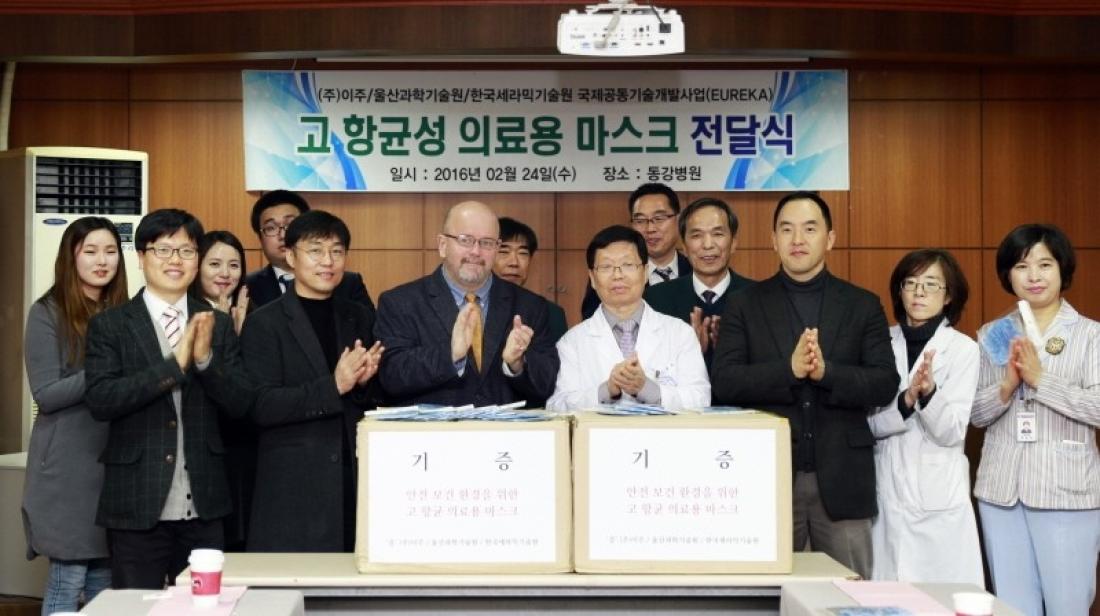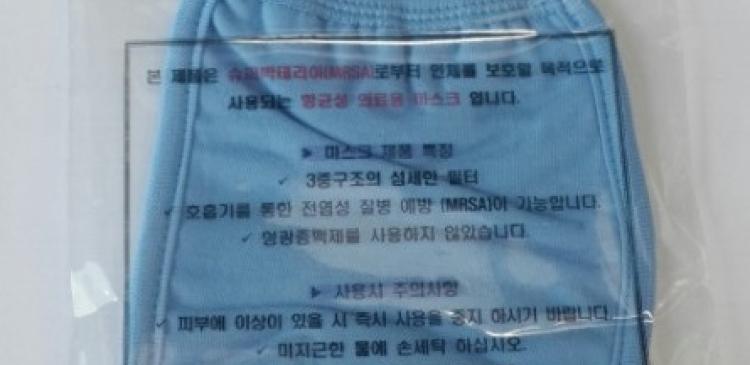A Korean industry-academic collaborative group, involving UNIST, Yeejoo Co., Ltd., and KICET are posing for a portrait at the donation ceremony with Ulsan Dong Kang General Hospital staffs on Feb. 24.
Antibiotics have proven to be a valuable weapon in the fight against infectious bacteria. However, due to the excess use of antibiotics in conventional treatments, overtime antibiotics have become less effective.
This widespread use of antibiotics has resulted in the ongoing and ever-increasing prevalence of antibiotic-resistant bacteria, also known as superbugs. Every year, indeed, 0.7 million patients die from a drug-resistant "superbug". Moreover, nosocomial infections, otherwise known as hospital-acquired infections, have become a growing problem worldwide and South Korea is no exception, scientists say.
To address this threat, an industry-academic collaborative group, affiliated with Ulsan National Institute of Science and Technology (UNIST), South Korea, has recently announced that they have successfully engineered anti-bacterial fabrics that are effective against the super-bacterium, Staphylococcus aureus.
Consequently, as part of a local public health project, the collaborative group involving UNIST, Yeejoo Co., Ltd., and Korea Institute of Ceramic Engineering and Technology (KICET) used this anti-bacterial fabric to produce proto-type anti-super-bacterial masks. The group recently donated these masks to Dong Kang General Hospital, a local hospital in Ulsan, South Korea. The donation ceremony was held on Wednesday February 24, 2016.
This anti-bacterial fabric was developed using a natural bacterial pigment called 'Violacein', which is violet pigment naturally made by bacteria found in nature, and is reported to have antibacterial, antiviral, antiprotozoal and anticancer effects. The research team at UNIST, led by Prof. Robert J. Mitchell (School of Life Sciences) extracted crude violacein using a self-developed production method and this was used to dye the cotton fabric. They discovered that this fabric blocked the growth of MRSA and other multi-drug resistant Staphylococcus aureus strains by 99.9%.
Prof. Mitchell said "This is first case where an antibacterial fabric was produced using violacein. This fabric has the possibility to reduce the impact of super-bacterial infections. " and "We hope this donation will help public health."
This work was supported by a grant from the Korea Institute for Advancement of Technology (KIAT) through the EUREKA program.




